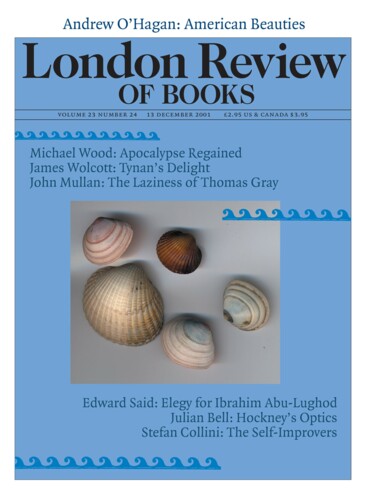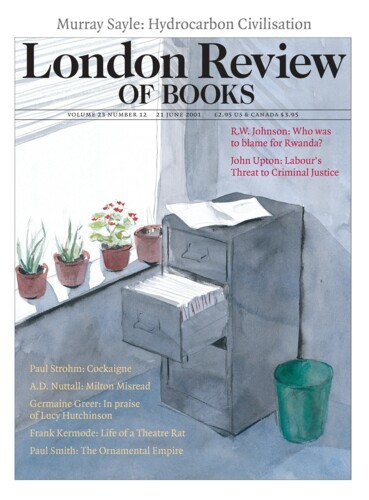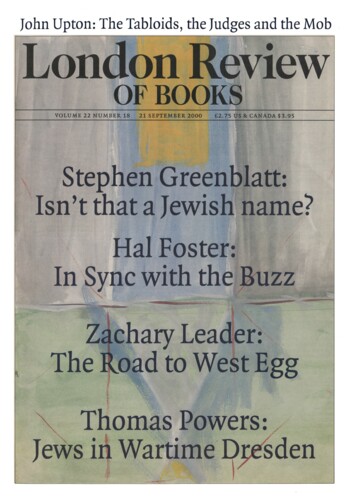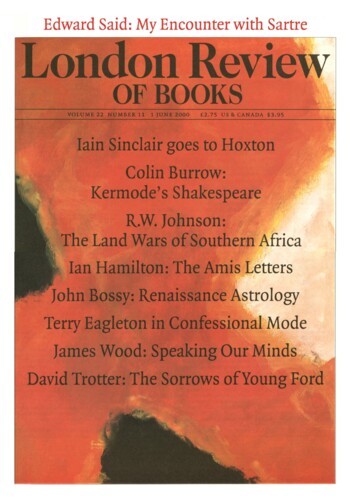Plummeting Deep into Cold Pop: Colson Whitehead
Zachary Leader, 13 December 2001
Colson Whitehead’s first novel, The Intuitionist (1999), won several prizes and extravagant praise from American critics. Whitehead is black and comparisons were made to Ralph Ellison, Toni Morrison and Ishmael Reed. John Updike has called him ‘blithely gifted’, ‘the young African-American writer to watch’. Whitehead’s new novel, John Henry Days, is longer...




